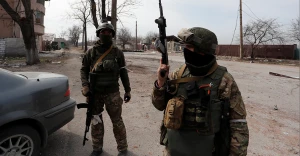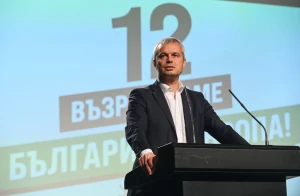
Negotiations with Russia in autumn? Illusion...
The reaction to the Crimea bridge blast has shown that the Kremlin's planning horizon is March of 2023. But in this planning, the autumn talks, which have been discussed so much lately, have little chance of being implemented
I want to say right away: I am not considering here the modality or, moreover, the possible details of the negotiations. For now, I would like to analyse the possibility of them, because recently many experts have begun to say that we will be forced to sit down at the negotiating table in autumn.
1. One thing is clear from Putin's speech he made 15 hours after the explosion on the Crimean bridge: the Kremlin has decided to pretend that nothing serious has happened. Obviously, there will be shelling of Ukrainian infrastructure, and the Russian forces will say that they have destroyed something. Perhaps there will be a massive attack on Kyiv and the government district in particular. But there is nothing new here and cannot be. All the options for raising the stakes, and Putin has three of them (the grain deal, the nuclear power plant and a direct nuclear strike) have been used in one way or another. There is nothing new, and there will be no nuclear strike.
2. The Kremlin's main hope now is Kupiansk. The situation there has been difficult for at least a month. The Russian forces have been concentrating their striking fist there not only to try to break through the defences in the Kharkiv region, but also to force Ukraine to move units from Bakhmut and the south.
“At the same time, we have to understand that these are Putin's last reserves that he was able to pull without mobilisation. And, apparently, all his hopes are that he will succeed here and then there will be no need to call for mobilisation. If he fails, it's not a problem either. His plan B is not to lose Melitopol and Bakhmut before the elections (the latter is primarily symbolic). All other decisions will be made after the elections”
3. The entire Russian state machine is now focused on the presidential elections in March 2024. The main goal is to prevent the processes from being politicised and to achieve the required real 60% of the vote. I have repeatedly said that those who believe that Putin does not care about percentages are deeply mistaken. He will fall without popular legitimacy (the elites will realise that the king is naked when his real ratings fall below 40%).
4. The main aspect of the upcoming campaign: uniting Russians around Putin. This idea was tested rather unsuccessfully after Prigozhin's march, but no replacement has been proposed and perhaps not sought. And they are not looking for it because Putin likes it very much, as he is increasingly immersed in the virtual world, where he is comfortable above all. The second aspect of the election is a comfortable country (as the Russian newspaper Vedomosti recently wrote about). A comfortable country is one where all the TV channels will be talking about how the economy is developing, how everyone is living well, etc. And finally, the third aspect: migrants. And this aspect will be brought out in a separate micro-campaign in Moscow and the region. Against this background, the war is something secondary.
5. In fact, peace talks can fit into this whole picture only under one condition: Ukraine's complete surrender. Putin most likely cannot afford to take half-steps and talk about concessions before the elections. Therefore, based on the logic of the electoral process and the lack of opportunity to raise the stakes, the likelihood of negotiations in the autumn is relatively low.
6. Under what conditions could such negotiations theoretically begin?
There are two basic options:
a) Putin's political or physical death;
b) a joint tough stance by the United States and China (not individually, but a joint stance).
As for Putin's death, let's leave the talk about it as a pleasant black swan for us, because there is nothing to analyse here. As for the positions of China and the United States, both countries are in no hurry. China needs time for Russia to become as dependent on China as possible, and in some sectors irrevocably so (this will happen no earlier than the middle of next year). The United States cannot enter an election where the president will be accused of repeating Munich and the division of Czechoslovakia.
So for now, the likelihood of negotiations starting can be assessed as relatively low. Although, of course, life will make its own adjustments and the basic attitudes that exist today may change. But for now, you should definitely not follow those who categorically state: "we will be brought to the negotiating table in autumn".
About the author: Vadym Denysenko, political scientist.
The editors do not always share the opinions expressed by the authors of the blogs.
- News














































